

-
-
- 메일 공유
-
https://stories.amorepacific.com/en/amorepacific-authentic-growth-is-the-fastest-path
Authentic Growth is the Fastest Path
Journey to Discovering ‘Selfness’#5

Columnist
Ye-rin Kang CSR Team


Source: Yes24
#INTRO
“100 Life Picture Book” is a picture book that portrays life from birth to one hundred years through one hundred illustrations. The author explains that with each page turn, time flows, and one learns numerous lessons within the days lived. As a child, one learns to wake up early for school; in their twenties, they discover love; in their thirties, they realize that happiness is relative; and in their forties, they understand the necessity of letting someone go.
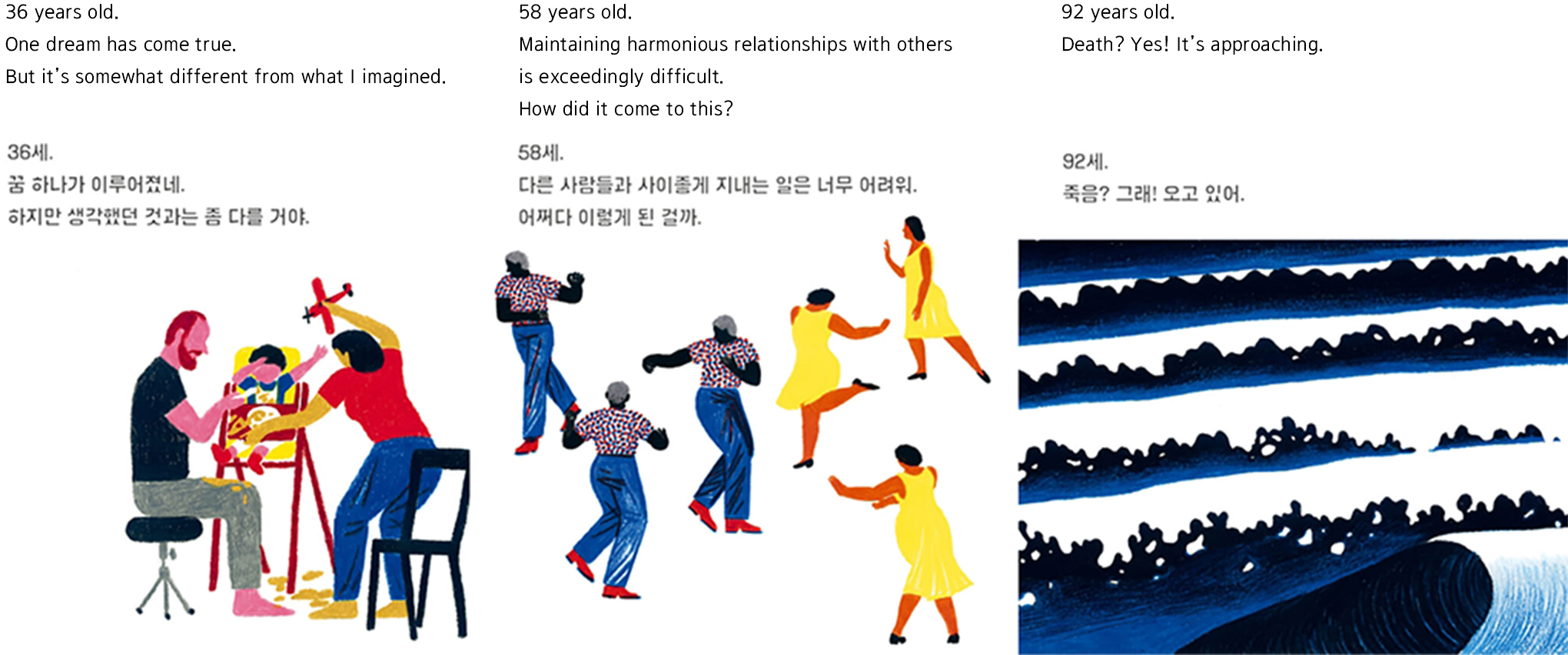
Source: Yes24
Continuously discovering something new ultimately means that one is living. To write this piece, the author met people of various ages and asked, “What have you learned in life?” Gathering numerous responses, the author compiled them into this book. Aging brings the constant encounter of new experiences, and the growth accompanying them is profoundly important in life. Through this process of learning, I reflect on whether I am growing authentically. In this column, I aim to discuss the most genuine form of ‘growth.’
1 Discovering What ‘Authentic Success’ Means Is Crucial
To cultivate the most authentic growth, it seems essential to first determine the direction one is heading in. Without a clear direction, even if one grows, one may end up going in circles. Therefore, it is necessary to contemplate what success one aims to achieve through growth.
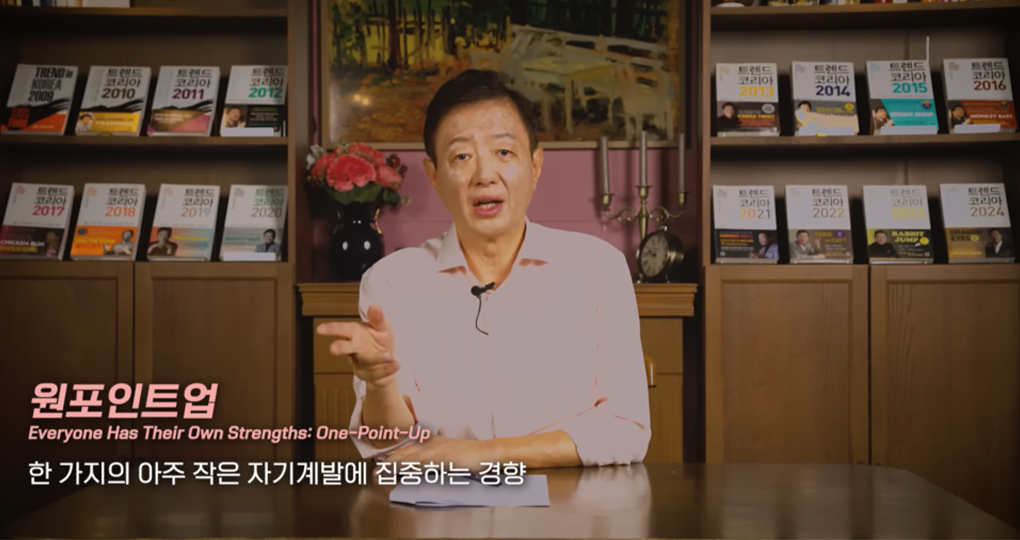
Source: YouTube Channel “Trend Korea TV”
Recently, Professor Nan-do Kim of Seoul National University’s Department of Consumer Studies published “Trend Korea 2025.” Once again, consumer trends are summarized into ten key themes, one of which is “One Point Up.” One Point Up signifies the tendency to concentrate on a single, tiny aspect of self-improvement. Unlike general success formulas such as being a ‘morning person’ or ‘adopting wealthy habits,’ One Point Up emphasizes self-focused personal development without having specific role models. The essence of One Point Up lies in continuously accumulating small personal achievements. So, how can One Point Up be applied? Professor Nan-do Kim presents the core of One Point Up as follows:
“The first thing to do is to find out what 'authentic success' means to you.
As the conventional standards of success disappear,
people have recently started to understand themselves through various aptitude tests and diverse experiences.
It is necessary to design one’s life at their own pace without losing their 'authentic self.'"
- Interview with Professor Nan-do Kim in Trend Korea 2025 -
With the disappearance of typical success standards, finding out what “authentic success” means has become increasingly important. Here, ‘success’ can be interpreted differently by each individual. For some, creating a family and maintaining harmonious relationships might be the most remarkable success; for others, ascending to the highest position in their career may define success. Moreover, one's definition of success can encompass multiple aspects and evolve over time. Indeed, ‘authentic success’ appears subjective, varying from person to person. However, it is crucial to contemplate what constitutes your most authentic success rather than envying successes that seem admirable compared to others.
Reflecting on the time of job hunting, I recall numerous conversations such as “Someone got into that position because of their role” or “Someone studied a particular profession because it’s promising.” At that time, I was more drawn to opportunities with higher chances of success and what others deemed favorable than following my desired path. However, when one decides on a career based on external opinions rather than personal aspirations, one tends to experience more trial and error, ultimately returning to the place one truly wanted to be. Therefore, defining one’s success and pursuing growth toward it might seem like a slower path initially, but in hindsight, it is often the most efficient route.
2 Questions for Authentic Growth: ‘Coaching’
Once you have defined your authentic success, you need to design how to grow towards it. In my experience, the most beneficial method has been coaching. Here, ‘coaching’ refers to a process where the coach and the individual receiving coaching form a partnership, setting personal goals and effectively achieving them to support growth. Often, when people think of ‘coaching,’ they might equate it to mentoring—where the coach offers advice and answers. However, in coaching, the coach never imposes their subjective opinions. Instead, they pose ‘questions’ that enable the individual or client to discover answers on their own and foster growth. This approach is based on the belief that the client already holds the solutions within themselves and possesses the wisdom and capability to make wise choices. Regardless of the environment or the person, everyone is seen as having these inherent abilities. Therefore, the coach's role is to trust the client and ask questions that guide them to find their answers.
After serendipitously discovering coaching, I began practicing self-coaching and felt compelled to help others through coaching. This led me to obtain a KAC coaching certification. To achieve this, I needed to complete practical training, which involved demonstrating coaching sessions and receiving coaching. Initially, I questioned whether receiving coaching would indeed be beneficial. However, as I engaged in coaching and responded to the coach’s questions, I found myself discussing aspects of my inner self that I hadn’t been aware of before. The coaching conversation model follows the STAR structure—Story, Target, Action Plan, and Recap. While coaches use this framework as a reference, they tailor their questions to the individual’s narrative, helping clients find their answers and move forward. I noted several example questions from the books I studied, which I’ve included above.
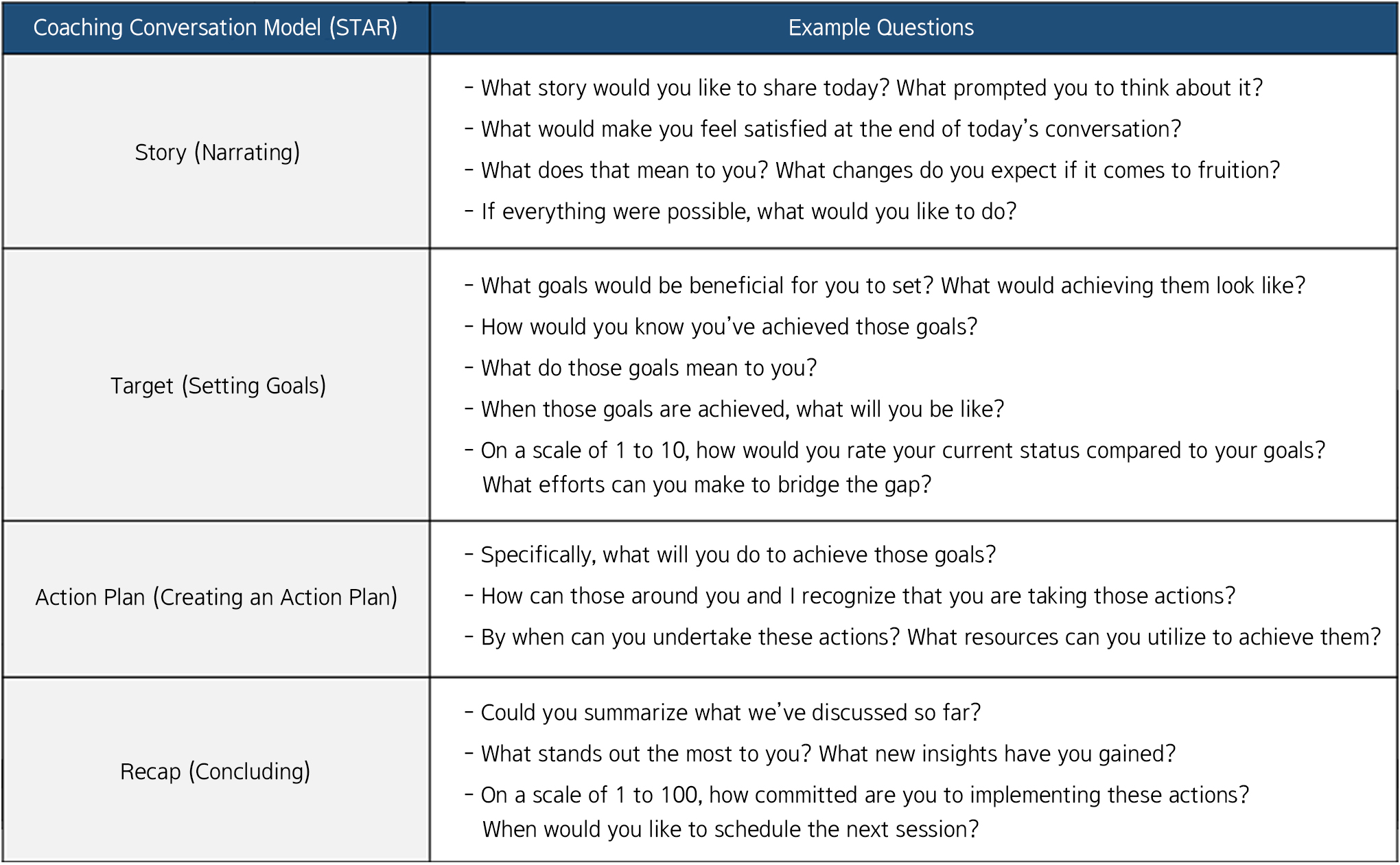
Some coaching questions have left a lasting impression on me, such as, “What changes do you want to see in yourself N years from now, and how do you envision them?” and “What would your future self say to you now?” These questions helped me visualize my desired future and provided motivation in the present. Additionally, assessing my current status on a scale of 1 to 10 relative to my goals and understanding the reasons behind my score clarified the areas I needed to improve.
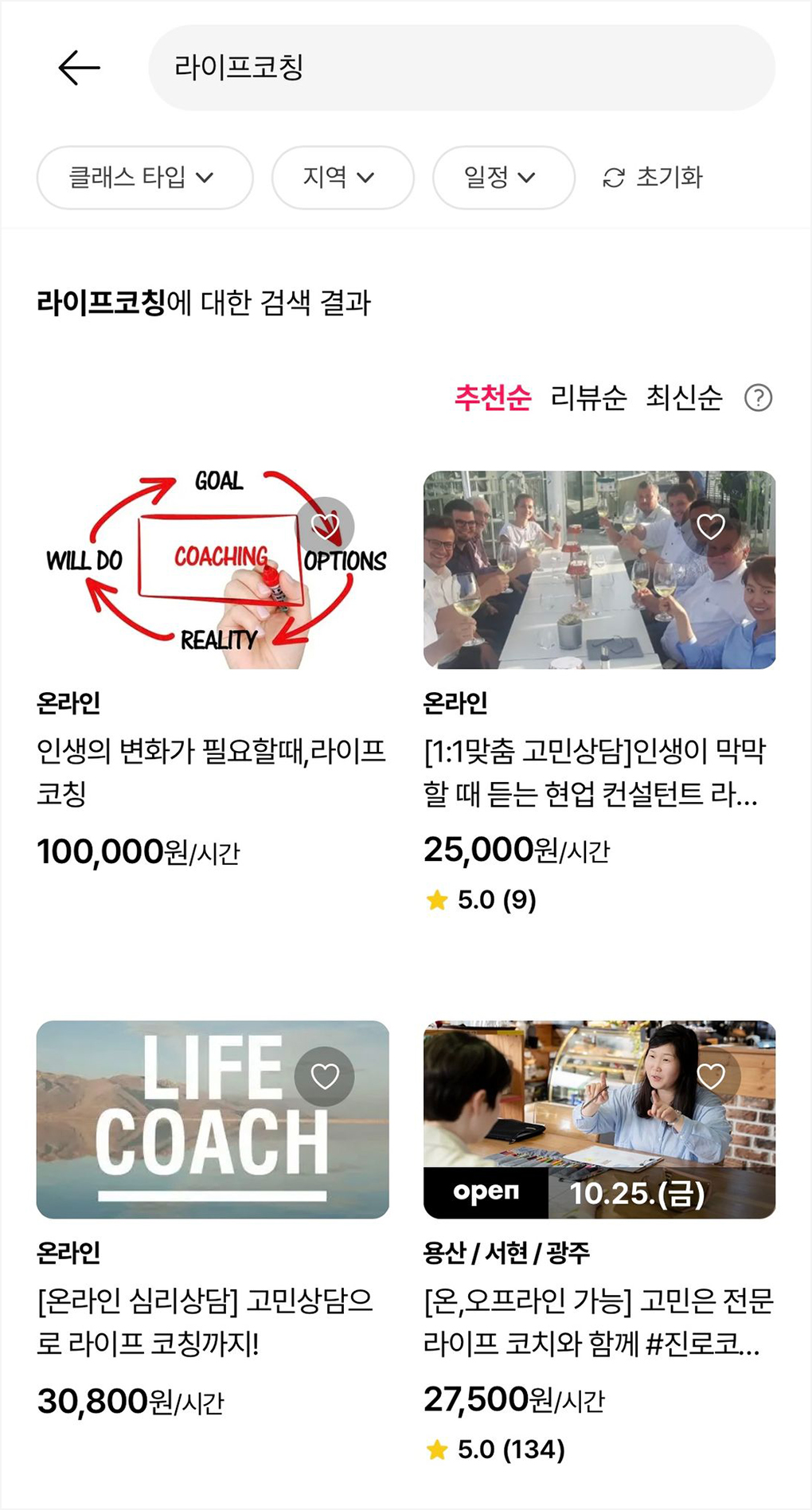
Source: 'Taling' App Searching result ('Life Coaching')
Receiving coaching from a professional coach is ideal. A straightforward way to find a coach is to search for ‘life coaching’ on apps like Kmong or Taling. ‘Life coaching’ is one of the coaching types focused on achieving personal goals in daily life, making this search term the most appropriate. When selecting a coaching class, verifying the instructor’s credentials and ensuring they hold professional coaching certifications such as KAC(1), or KPC(2) is best.
However, even if you don’t receive coaching from a professional, practicing self-coaching can be beneficial. Without a coaching certification, you can still utilize the example questions shared above to engage in personal reflection. While these questions might seem formulaic, taking the time to ask and answer them earnestly can lead you to uncover aspects of yourself that you were previously unaware of. Maintain the belief that “the answers are within you” and continue to ask yourself insightful questions.
1. Professional Coaching Certification certified by the Korea Coach Association
2. Advanced Coaching Certification beyond KAC
3 Transforming the Process into ‘Recording’ and the Outcome into ‘Execution’
Engaging in self-inquiry and answering one’s questions is invaluable, yet another crucial element lies in ‘recording.’ Establishing personal definitions of success and designing pathways for growth are significant when contemplated internally or articulated verbally and when documented in writing. This act of writing and preserving thoughts amplifies the growth potential.
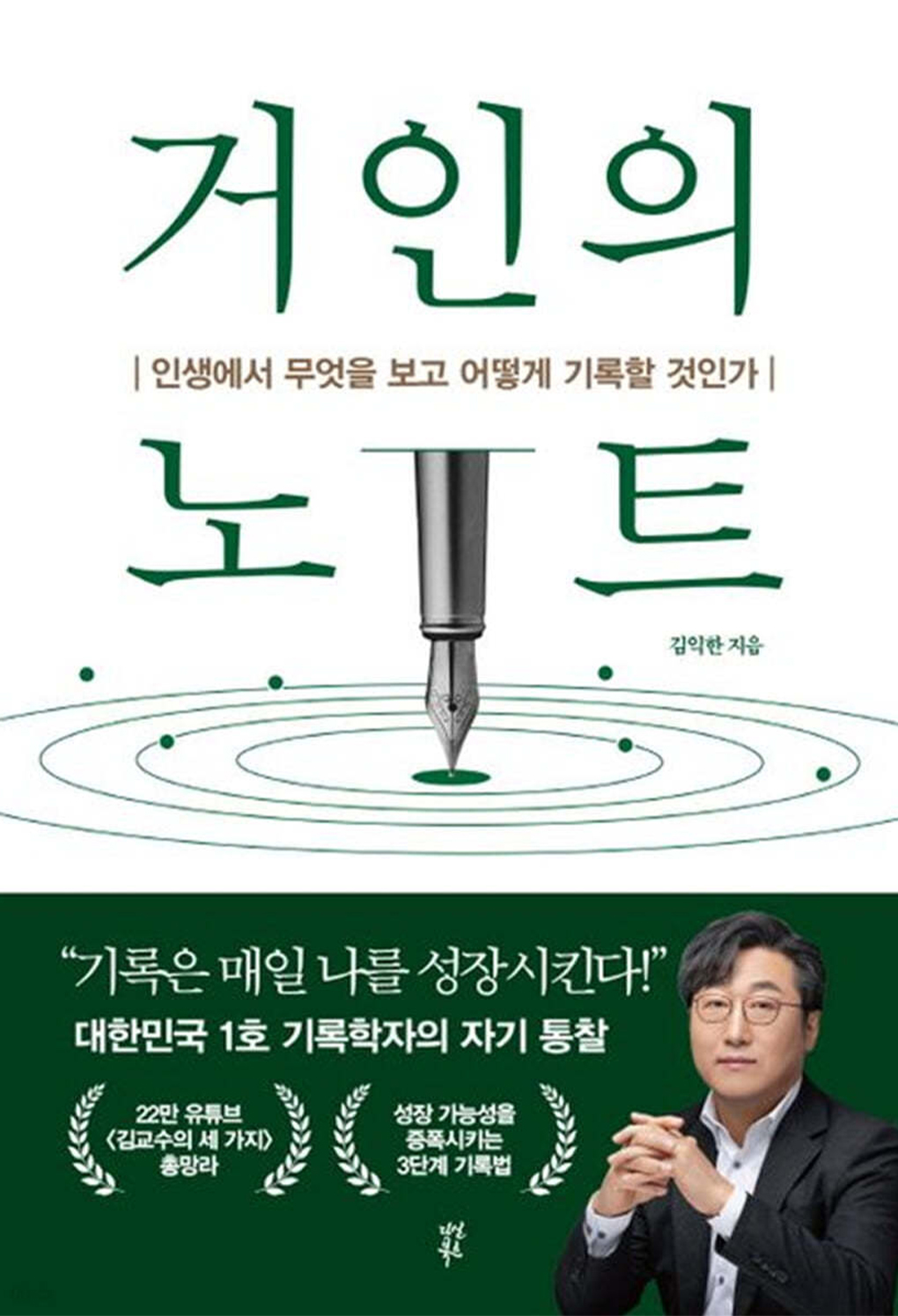
Source: Yes24
Professor Ik-han Kim of Myongji University recognized as South Korea’s foremost scholar in the field of record-keeping, has now become a ‘Record Propagator.’ In his publication, “The Giant’s Notebook,” he asserts that recording has become the quickest and most accessible weapon for life improvement available today. If academic performance stagnates despite extensive studying, one must apply the principles of recording to develop effective study methods. Similarly, if reading fails to leave a lasting impression, maintaining a reading journal and mastering the art of note-taking becomes essential. When burdened by emotional distress, listing and documenting the troubling circumstances can provide clarity. To enhance performance, keeping a work diary is recommended, and maintaining dialogue records is advised for those aspiring to excel in conversations. By consistently documenting various aspects of life, including daily routines, studies, work, and relationships, one gains clarity and uncovers the root causes of previously perplexing issues. This practice often reveals facets of oneself that were previously unnoticed. In essence, recording is indispensable for authentic personal growth.
In my own experience, I cherish the habit of recording and utilizing it for growth. I maintain an annual practice akin to a ceremonial event. Every year-end, I reflect on the past year by writing down my ‘Achievements’ and ‘Regrets’ in a notebook. Following this, I set goals and plans for the upcoming year. During this process, I contemplate how to sustain or further develop the achievements from the previous year and how to address the areas of regret. By documenting these reflections, when the memories of that year’s goals begin to fade, I can frequently revisit and remind myself why I set them and what plans I devised to achieve them. This practice has proven immensely beneficial. However, after recording, translating these plans into ‘execution’ is equally important. My perspective on execution was transformed after reading “The Rebel in Trend.”
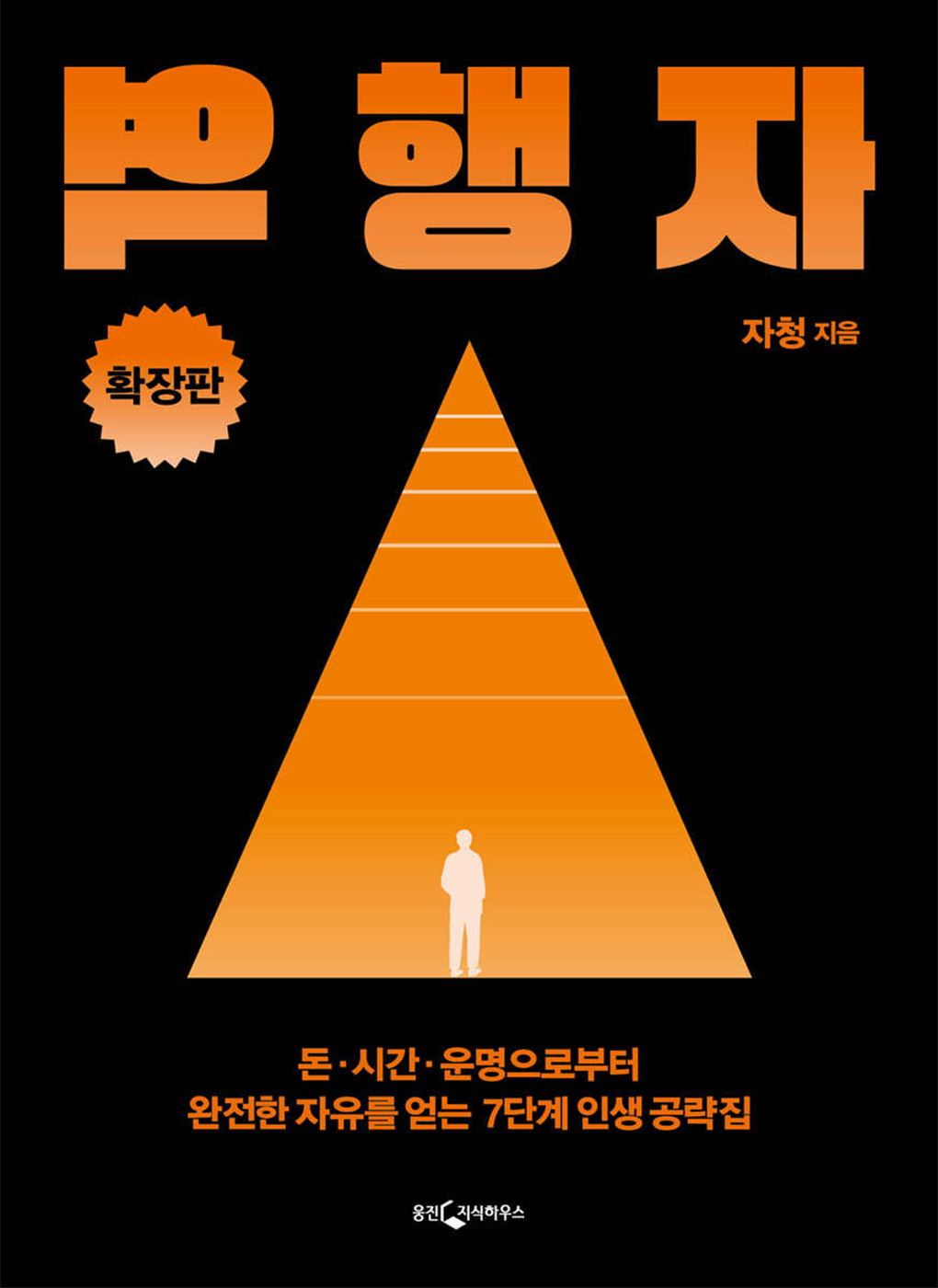
Source: Yes24
A ‘Rebel in Trend’ refers to an individual who does not conform to certain norms but moves in the opposite direction. According to the author, most people become ‘Conformists’ because they follow their genetic and inherent instincts, making it difficult to break free from ordinariness. Simply put, due to a naturally lazy disposition, relying solely on personal willpower to undertake actions often leads to inaction, causing individuals to revert to habitual behaviors. Therefore, the author suggests that if one aspires to excel, one should focus on creating the right environment rather than merely making resolutions. For instance, enrolling in a competition that necessitates submission by a deadline or publicly declaring one’s goals and imposing penalties for failure can be effective strategies. Aspiring to improve my ‘writing skills’ led me to apply for a column writing opportunity. The prospect of having a set deadline and the pressure to perform compelled me to write consistently. Had I relied solely on my willpower, I might have abandoned the effort midway. However, being in a situation where writing was mandatory enabled me to persevere. Although the process was somewhat challenging, completing it allowed me to learn extensively through execution and produce tangible outcomes.
4 Consistently Pursuing Your Unique Path Leads to Quantum Leap Growth
In outlining the pathways to authentic growth—(1) Defining Your Success, (2) Asking Growth-Oriented Questions Through Coaching, and (3) Recording and Executing Your Growth Process—I have shared strategies that are both personal and transformative. Amidst these, the most challenging yet crucial element is ‘consistency.’ While groundbreaking innovations once commanded admiration, today, individuals who steadfastly pursue their chosen paths, regardless of the method, garner the most respect. When consistency underpins growth, even if immediate results are not apparent, it can eventually culminate in a ‘quantum leap’ in personal development.
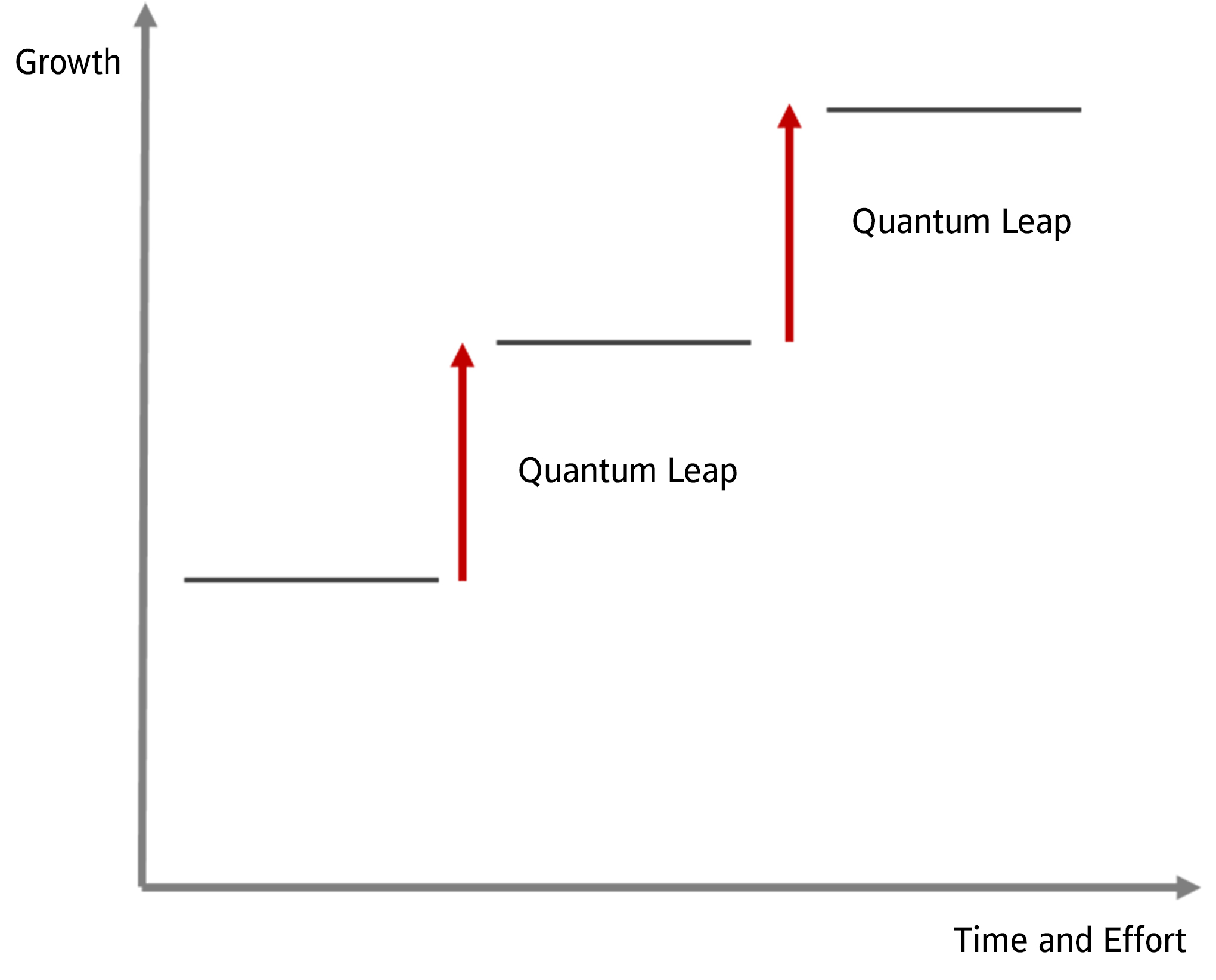
However, maintaining consistency is no small feat. It necessitates discovering and adhering to methods that resonate uniquely with you. For instance, while others might advocate for morning exercise routines, you may find that evening workouts better suit your lifestyle. Similarly, even if a well-equipped gym is available, its distance might deter regular attendance, whereas a conveniently located gym near your home could foster daily commitment. By identifying and implementing these personalized approaches, you cultivate a sustainable practice, allowing you to witness your persistent efforts translate into meaningful growth.
#OUTRO
Reflecting on the 100 Life Picture Book mentioned in the introduction—imagine your life as a personal version of this book. Where are you currently on its pages, and what stories are being documented? I envision a depiction of myself that remains true to who I am, consistently evolving with a hundred distinct facets of growth. I encourage you to visualize your picture book, filling each page with the most authentic and progressive chapters of your life.
This column, themed around the Journey to Discovering Your ‘True Self,’ delved into personality, strengths, preferences, mental well-being, and personal growth. As we conclude, I hope my reflections have guided those striving to understand their true selves. Thank you sincerely for reading.
-
Like
2 -
Recommend
1 -
Thumbs up
0 -
Supporting
0 -
Want follow-up article
0





